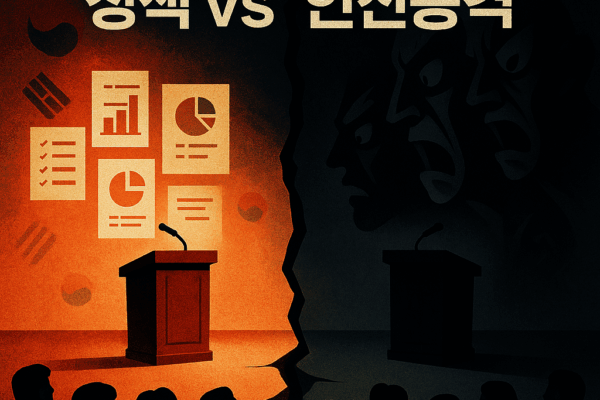Shocking Number of Passers Opens a New Era for the Bar Exam
On April 24, 2025, the South Korean legal community received news of 1,744 new bar exam passers. With over half of all candidates—an astounding 52.28%—passing at once, and an incredible 74% success rate among recent graduates, what signs of change could be hidden behind these remarkable figures?
The Secret Behind the Soaring Bar Exam Pass Rate
The results of the 14th Bar Exam have exceeded many expectations. More than half of all test-takers passing at once has sent ripples through the legal sector. Especially notable is the 74% pass rate among graduates, which not only reflects qualitative improvements in law school education but also hints at possible adjustments in exam difficulty.
A Seismic Shift in the Legal Market: What Does It Mean?
The influx of 1,744 new lawyers is expected to bring significant changes to the legal services market. While this could enhance accessibility to legal services, it also raises concerns about intensified competition among lawyers and potential income declines.
The Future of the Bar Exam: Qualifications or Gatekeeping?
The high pass rate is likely to fuel more active discussions about turning the bar exam into a strict qualification test. Legal experts are advocating for stronger assessments of practical skills and better regulation of the number of passers. This suggests that the bar exam may evolve beyond mere knowledge testing to become a tool for selecting truly capable legal professionals.
Conclusion: The Legal World at a Crossroads
The latest bar exam results carry significance far beyond numbers. Representing changes in the legal education system, a reshaping of the legal services market, and reforms in the exam system, these developments offer vital clues about the future of the legal profession. Now is the crucial moment to watch how these changes will impact society and the advancement of the rule of law.
Striking Pass Rate Gap: What Has Changed?
A 52.28% overall pass rate versus a 74% pass rate among graduates—these statistics are sharply different from just a few years ago. Why has such a gap emerged? Let’s uncover the hidden secrets behind law schools and the exam structure lurking beneath the surface numbers.
Changes in Law School Education
Recent transformations in law school education systems have been pinpointed as a key reason for the pass rate disparity. Law schools have intensified practice-oriented curricula and improved mock exam systems, providing graduates with systematic support in exam preparation. These efforts appear to have translated into the higher pass rates among graduates.
Shifts in Exam Structure
The structure of the bar exam itself has also evolved. The recent exam reforms place greater emphasis on practical skills, which likely advantages graduates who can directly apply the hands-on knowledge acquired in law school.
Differences in Preparation Between Current Students and Graduates
- Current students: face the burden of balancing academics and exam prep
- Graduates: enjoy an environment to focus solely on the exam
This environmental difference further widens the pass rate gap. Graduates can dedicate more time and mental space to exam prep, enabling more effective study.
Impact of the Legal Education Eligibility Test (LEET)
The role of LEET, filtering top talent from the admission stage onwards, cannot be overlooked. Students admitted with high LEET scores tend to perform well in the bar exam post-graduation, potentially contributing to the elevated pass rate among graduates.
Future Outlook
This gap is likely to deepen. Law schools will continue to refine their education systems to boost graduate pass rates, potentially widening the divide between current students and graduates even further.
In conclusion, changes in law school education, exam restructuring, and differing preparation environments have combined to create this striking pass rate gap. Moving forward, managing this disparity and maintaining fairness will become a crucial challenge for the legal profession.
The Demand for ‘Qualification Examination’ and Heated Social Debate
Immediately after the unprecedented number of successful candidates was announced, voices calling for the transformation of the Bar Examination into a ‘qualification exam’ began spreading like wildfire within the legal community. We guide readers through the fierce protests by lawyer organizations and the heated debates surrounding the exam reform.
Legal Community’s Reaction and Call for Qualification Exam
Following the announcement of the Bar Exam results, calls for a fundamental overhaul of the exam have grown louder within the legal sector, with discussions actively centered around the concept of ‘qualification examination.’
- Korean Bar Association: Emphasizes the necessity to regulate the number of passers
- Council of Law Schools: Advocates strengthening the evaluation of practical skills
- Ministry of Justice: Currently reviewing discussions on exam reform
Lawyers Take to the Streets: The Protest Scene
Lawyer groups have gone beyond issuing statements by taking to the streets to raise their voices in protest. At Gwanghwamun Square in Seoul, massive rallies are held daily. Participants assert the need for exam reform, expressing concerns over the “decline in the quality of legal professionals” and “confusion in the legal services market.”
A Heated Forum: ‘Bar Examination Reform Forum’
The ‘Bar Examination Reform Forum’, gathering members of the legal community, academia, and government officials, convened to discuss the future of the Bar Exam. The forum focused intensively on the following key issues:
- Appropriate scale of successful candidates
- Methods of assessing practical abilities
- Criteria for adjusting exam difficulty
- Comprehensive measures to improve the legal professional training system
Changes and Challenges Brought by Qualification Examination
Transforming the Bar Exam into a qualification examination is expected to create significant ripple effects throughout the legal field, far beyond a simple test reform.
- Anticipated improvement in the quality of legal services
- Possibility to regulate the supply of legal professionals
- Need for curriculum changes in law schools
- Issues concerning retraining existing lawyers
The debate over making the Bar Exam a qualification test demands profound reflection not only on the exam system itself but also on the overall quality of legal services and the framework for training legal practitioners in our society. The eyes of both inside and outside the legal world are now fixed on how this discussion will unfold and what final conclusions will be reached.
Lawyer Bar Exam at a Crossroads: What Will Be the Fate of the Legal Profession?
The essence of the lawyer bar exam is sparking heated debate within the legal community. On one side, voices argue that “the exam should be a qualification assessment, not a competitive employment test,” while on the other, concerns grow over the oversupply of legal professionals. Amid this crossroads, which path should the lawyer bar exam choose?
Qualification Assessment vs. Competitive Exam
The controversy over the identity of the bar exam is fierce. Those advocating for strengthening qualification assessment present the following reasoning:
- A practical skills-focused evaluation is necessary to enhance the quality of legal services
- It is crucial to verify legal reasoning and problem-solving abilities beyond mere memorization of knowledge
- Assessment should also include the ethical awareness and social responsibility of legal professionals
Conversely, those insisting on maintaining the exam’s competitive nature argue:
- A certain level of difficulty is needed to regulate the supply of legal professionals
- Intense competition is essential to select outstanding talent
- Excessive focus on qualifications may diminish the exam’s ability to differentiate among candidates
Oversupply of Legal Professionals: What’s the Solution?
The issue of oversupply stands at the core of the debate over reforming the bar exam. Various solutions have been proposed:
- Controlling the Number of Passers: Adjusting exam difficulty or raising passing criteria to limit the number of successful candidates
- Encouraging Specialization: Strengthening legal expertise by implementing in-depth assessments in specific legal fields
- Enhancing Practical Training: Extending and enriching the post-exam practical training period to improve qualitative standards
- Regional Quotas: Allocating passers by region to address regional disparities in legal services
The Future of the Legal Profession Is Being Decided Now
The direction of the lawyer bar exam is far more than a matter of exam policy—it is a pivotal decision that will shape the entire future of the legal profession. It can impact the quality of legal services, the social role of legal professionals, and the trustworthiness of the judicial system that underpins the rule of law.
At this very moment, we stand at a critical crossroads determining the future of the legal community. Social consensus and wise choices from the legal profession regarding the bar exam’s path are more urgently needed than ever. We hope this decision will open a new horizon for the Korean legal profession.
The 2025 Pass Announcement Foretelling Change Beyond Numbers
More than just a list of successful candidates—this announcement fundamentally questions the training system for legal professionals and the very purpose of the bar exam. We must watch closely to see how this ripple will reshape the future of Korea’s legal community.
A Harbinger of Tremors in the Legal Sphere
The 2025 bar exam pass announcement carries significance beyond mere numbers. The total of 1,744 successful candidates is itself sending shockwaves through the legal world. It raises concerns about an oversupply of lawyers and calls for a fundamental reconsideration of the exam’s difficulty and evaluation methods.
Accelerating Discussions on Exam Reform
This announcement is expected to accelerate debates about transforming the bar exam into a qualification-based test. Strengthening practical skills assessments and introducing mechanisms to regulate pass numbers are emerging as key issues. This could mark a critical turning point leading to a comprehensive overhaul of the legal professional training system.
The Necessity of Social Consensus
Concerns over the high passing rate and pushback from the legal sector signal more than a numbers issue—they pose a deep question about what kind of legal professionals society truly needs. This highlights the urgent need for social consensus on balancing the quality of lawyers with the fair provision of opportunities.
A Blueprint for the Future Legal Community
This announcement will serve as a crucial starting point in envisioning the future landscape of Korea’s legal field. As the purpose of the bar exam is redefined and the lawyer training system modernized, differing stakeholder opinions are expected to clash. It is essential to observe what compromises will emerge and how they will influence the advancement of the rule of law in our society.
The 2025 bar exam results mark more than a simple disclosure—they sound a clarion call for fundamental transformation within Korea’s legal sector. Continuous attention and dialogue are required to see how far this wave of change will extend and what new legal environment will emerge as a result.




